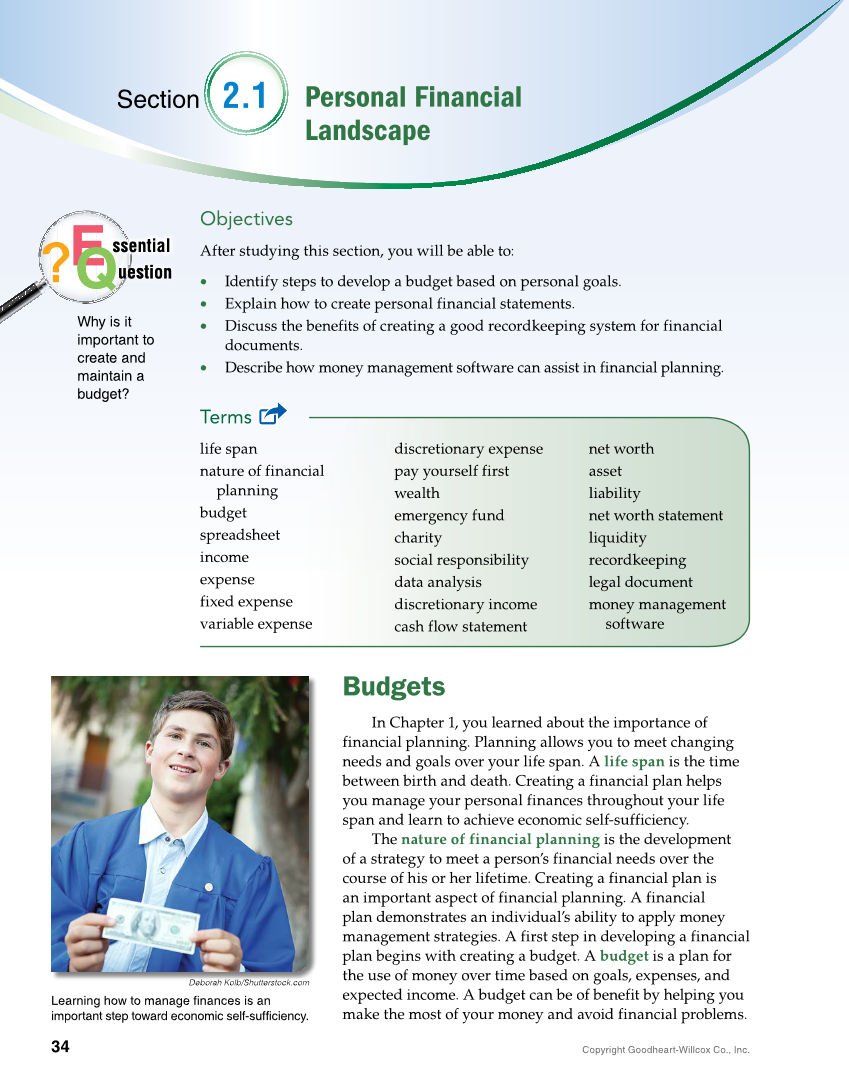Copyright Goodheart-Willcox Co., Inc. 34 E Q ssential uestion Terms Section 2.1 Objectives After studying this section, you will be able to: • Identify steps to develop a budget based on personal goals. • Explain how to create personal financial statements. • Discuss the benefits of creating a good recordkeeping system for financial documents. • Describe how money management software can assist in financial planning. Budgets In Chapter 1, you learned about the importance of financial planning. Planning allows you to meet changing needs and goals over your life span. A life span is the time between birth and death. Creating a financial plan helps you manage your personal finances throughout your life span and learn to achieve economic self-sufficiency. The nature of financial planning is the development of a strategy to meet a person’s financial needs over the course of his or her lifetime. Creating a financial plan is an important aspect of financial planning. A financial plan demonstrates an individual’s ability to apply money management strategies. A first step in developing a financial plan begins with creating a budget. A budget is a plan for the use of money over time based on goals, expenses, and expected income. A budget can be of benefit by helping you make the most of your money and avoid financial problems. E Q ssential uestion Personal Financial Landscape life span nature of financial planning budget spreadsheet income expense fixed expense variable expense discretionary expense pay yourself first wealth emergency fund charity social responsibility data analysis discretionary income cash flow statement net worth asset liability net worth statement liquidity recordkeeping legal document money management software Why is it important to create and maintain a budget? Deborah Kolb/Shutterstock.com Learning how to manage finances is an important step toward economic self-sufficiency.
